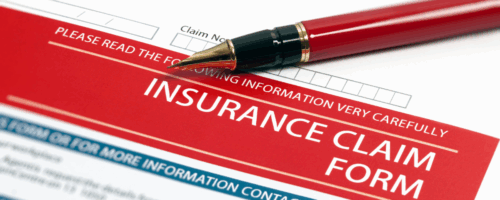eClosing is rapidly transforming the landscape of real estate transactions.
This digital innovation streamlines the closing process, making it more efficient and secure for all parties involved.
The traditional method of closing a deal – with its piles of paperwork and multiple in-person meetings – can be cumbersome and time-consuming.
With eClosing, however, these pain points are significantly reduced or even eliminated altogether. This revolution in property deals has ushered us into a new era where convenience meets compliance without compromising security and making the closing process smoother.
Table of Contents:
- Embracing the Digital Revolution: The Rise of eClosings
- The Mechanics of eClosing: How Does it Work?
- Unlocking the Potential: Benefits of eClosings for Buyers, Sellers, and Title Agents
- Ensuring Security in eClosings
- The Future is Here – Adapting to Digital Closings
- Conclusion
- Frequently Asked Questions about eClosing & RON
Embracing the Digital Revolution: The Rise of eClosings
The real estate and mortgage industries are witnessing a seismic shift, with eClosings gaining momentum. According to Redfin’s report, a remarkable 63% of homebuyers in 2020 made an offer on properties they hadn’t personally visited.
This is indicative of how digital closings have revolutionized the entire closing process, making it smoother for all parties involved. NotaryCam’s platform, eClose360, helps title agents manage their tasks more efficiently while ensuring that buyers and sellers can handle transactions from home.
A New Era of Efficiency and Convenience with eClosing Platform
eClosings bring about efficiency by streamlining paperwork management processes through online systems where closing documents can be accessed electronically via secure portals and signed electronically. This has significantly improved customer experience by allowing stakeholders to complete crucial steps remotely without compromising security or quality service.
Title agents stand to gain immensely, too, as these platforms make task management simpler, thereby enhancing productivity levels across teams.
Sustainability Through Paperless Closing Process
Beyond operational benefits, this digital transformation also contributes positively towards environmental sustainability goals due to reduced paper use during transactions – another reason why embracing eClosing results in multiple advantages beyond just convenience and speed.
Digital Trust in the Age of Remote Transactions
In today’s technology-driven world, people feel secure knowing that important processes such as property sales can occur remotely using reliable online systems to tracks changes in ownership interests for electronic promissory notes, securely protecting sensitive information at every step along the way.
The Mechanics of eClosing: How Does it Work?
As we navigate the digital revolution in real estate transactions, understanding how eClosings work becomes vital. The process begins with accessing closing documents electronically through a secure online application portal. This innovative approach allows buyers and sellers to review important paperwork, such as loan disclosures and purchase agreements, from the comfort of their homes.
This paperless closing process greatly enhances efficiency, yet certain key legal forms still necessitate an old-school signature before a notary public.
Hybrid eClosing vs. Fully Digital Closing
In contrast to fully digital closings, where every document is handled electronically, hybrid eClosings marry both virtual processes and traditional practices together. While most documents can be signed electronically within this model, there are specific critical ones that demand face-to-face interactions for signing purposes.
- A case in point would be the promissory note – a legally binding agreement between lender and borrower outlining repayment terms for loans – which must be ink-signed under supervision due to its significant nature across many states in America.
To put it simply, while platforms like NotaryCam have leveraged technological advancements to make real estate transactions more efficient via digitization, some aspects adhere strictly to conventional methods, ensuring security during pivotal moments throughout your entire closing process journey.
Unlocking the Potential: Benefits of eClosings for Buyers, Sellers, and Title Agents
The world is moving digital. The real estate industry is no exception, with eClosings leading the charge. But what are the tangible benefits that this shift brings?
Flexibility & Efficiency in One Package
The eClosing platform offers an unparalleled level of flexibility to all parties involved in a transaction. For buyers and sellers alike, it’s about more than just convenience; it’s about taking care of other priorities while smoothly navigating through closing documents.
Title agents also find themselves at an advantage as they can manage their tasks better within this environment, cutting back on unnecessary stressors associated with traditional closings. With all documents signed electronically, it can also be easier for title agents and lenders to adjust documentation quickly in the event of an error, making the closing process smoother and avoiding delays.
A Fast Track to Closing Deals & Ensuring Compliance
Time efficiency plays a critical role during any property deal – something that the eClosing process masters effortlessly by eliminating logistical bottlenecks such as travel or scheduling conflicts, which often delay proceedings.
In addition to speed, security measures integrated into these platforms help title agents manage legal requirements effectively. Built-in compliance checks ensure every step adheres strictly to regulatory guidelines, thereby enhancing the customer experience significantly.
Paperless Transactions – A Green Initiative
Moving beyond operational gains from going paperless during transactions has another far-reaching impact: environmental sustainability. By reducing our reliance on paper usage, we contribute towards preserving natural resources and minimizing waste generation too.
Ensuring Security in eClosings
The transition to digital closings necessitates stringent security measures. The confidentiality and integrity of sensitive data during eClosing transactions are paramount, with robust protections put into place.
A crucial part of this is the use of secure online portals for accessing closing documents. Advanced encryption technologies within these platforms guard your personal information against unauthorized access or breaches, making you feel secure knowing that your details are well-protected.
Digital Signatures: A Key Component In Fraud Prevention
A key aspect of securing eClosings lies in digital signatures. These provide authentication checks on electronically signed documents; they verify each signature against potential forgery attempts – virtually eliminating fraud risks within such an environment and cuts back on traditional issues associated with manual signing processes.
To further enhance confidence among parties involved in an eClosing transaction, many service providers often employ two-factor authentication (2FA), which provides additional protection by ensuring only authorized individuals can gain access to confidential documents, thereby reducing identity theft threats significantly.
The Future is Here – Adapting to Digital Closings
With the rapid advancement of technology, eClosings are becoming a mainstay in real estate transactions. This shift towards digital closings isn’t merely an industry fad; it’s shaping up as the new norm for property dealings.
Data suggests that by 2025, nearly 70% of all mortgage applications could be fully digitized. Thus, stakeholders – from homebuyers and sellers to title agents – must grasp how these eClosings work and adapt their operations accordingly.
Navigating Challenges In Adoption Of New Technologies
While adopting new technologies promises efficiency and convenience, it doesn’t come without its challenges. It requires investing time into learning about these systems and understanding their benefits while ensuring data security at every step.
- Familiarize yourself with hybrid eClosing platforms or fully digital closing solutions available on the market today.
- Incorporate them into your business model after thorough testing.
- Create secure environments where clients feel safe, knowing their information is protected throughout the entire process.
In conclusion, embracing change proactively will help businesses keep pace with current trends, thus enhancing the customer experience while taking care of environmental concerns through paperless procedures.
Conclusion
The digital revolution has paved the way for eClosing, transforming traditional real estate transactions into efficient and convenient processes. From accessing documents electronically to signing them digitally, the mechanics of eClosing have streamlined the entire closing process.
eClosings offers numerous advantages to buyers, sellers, and title agents alike – from better task management to improved compliance measures and enhanced customer experience. With robust security measures in place, your sensitive information is well-protected during these digital transactions. The future of real estate transactions lies in embracing technological advancements like eClosing.
Ready to take part in this new era? Our online notary service platform for real estate, eClose360, can help you navigate through your property deals smoothly and securely.
Frequently Asked Questions about eClosing & RON
What is RON for real estate, and how does it work?
Remote Online Notarization is a process that allows parties involved in a real estate transaction to complete the notarization of documents using audio-visual technology over the internet. This means that a notary public and the parties can interact and sign documents remotely without needing to be physically present in the same location. The notary uses secure online platforms to verify identities, witness signatures, and apply an electronic notary seal.
Is Remote Online Notarization legally valid for real estate transactions?
Yes, in many states and jurisdictions, Remote Online Notarization has been legally recognized as a valid method for notarizing real estate documents. However, the legality of RON can vary depending on the specific laws and regulations of your state or country. It’s essential to check with local authorities or legal professionals to ensure that RON is accepted for real estate transactions in your area.
What technology and equipment are required to participate in Remote Online Notarization for real estate?
To participate in Remote Online Notarization, you’ll typically need a computer or device with a webcam, microphone, and a stable internet connection. You might also need to use a specific online notarization platform that meets security and legal requirements. Additionally, you’ll need to have the necessary identification documents and any documents that need to be notarized ready for sharing and signing electronically.
What security measures are in place to prevent fraud during Remote Online Notarization?
Reputable Remote Online Notarization platforms implement several security measures to prevent fraud. These may include identity verification methods, such as knowledge-based authentication questions or multi-factor authentication. Video recordings of the notarization process may be stored as a record. Also, digital signatures and tamper-evident seals are applied to documents to ensure their integrity.
Are there any documents that cannot be notarized through eClosing for real estate transactions?
While many real estate documents can be notarized through Remote Online Notarization, certain documents might require in-person notarization due to legal requirements or complexities. Examples could include wills, certain types of trusts, and documents involving powers of attorney. It’s crucial to understand the specific document requirements and consult with legal professionals if you’re uncertain whether a document can be notarized remotely.







 Your Privacy Choices
Your Privacy Choices


